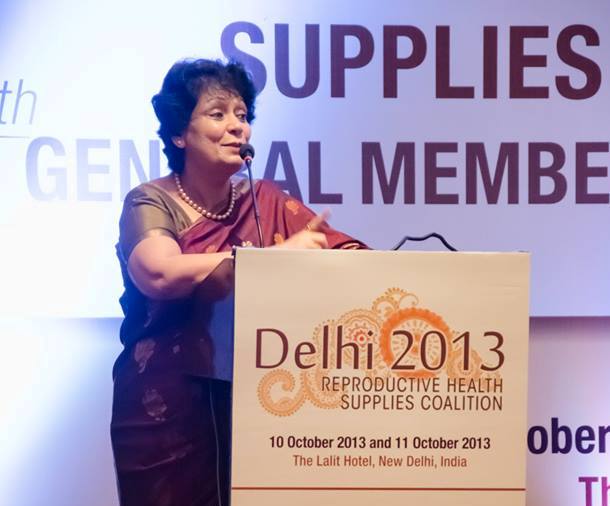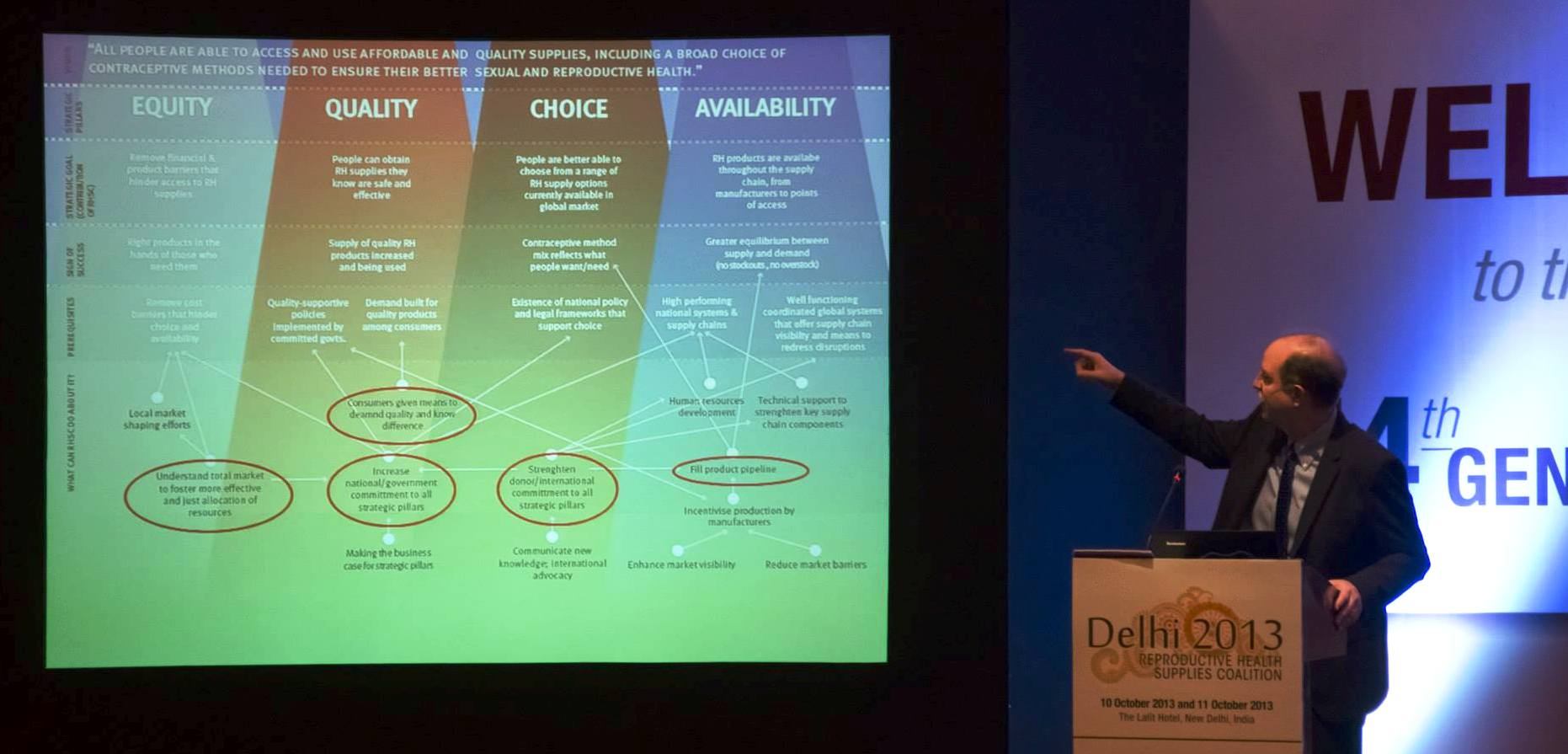
Ms. Anuradha Gupta, Additional Secretary of India’s Ministry of Health and Family Welfare and Mission Director of the National Rural Health Mission (NRHM) / Photo credit: RHSC
Last week, the Reproductive Health Supplies Coalition (RHSC) held their 14th annual meeting in Delhi, India. The meeting, cohosted by India’s Ministry of Health and Family Welfare, convened more than 200 participants from civil society, the private sector, and governments to work collaboratively toward strengthening the core principles of commodity security—method choice, quality, and equity—to increase access to affordable, high-quality family planning (FP).
Over the next decade, the number of FP users is projected to increase by more than 20%. Without a reliable supply of commodities, this increasing demand will not be met. Likewise, commodity security is a critical component to ensuring that FP clients’ rights are respected and fulfilled as governments seek to reach 120 million new FP under the FP2020 initiative. To achieve this goal, according to the United Nations Population Fund (UNFPA), a logistics system must fulfill six rights: the right quantities of the right products in the right condition in the right place at the right time for the right price.
One recurring message to emerge from the meeting was the importance of taking a rights-based, client-focused approach to commodity security. In a session about new and emerging technologies, the need to prioritize clients’ needs and desires over service delivery issues was trumpeted. This theme also arose in discussions about market segmentation strategies and the need to ensure that the right of all clients, regardless of socioeconomic status, to access high-quality commodities is not overlooked in efforts to maximize contraceptive reach.
Others urged taking a holistic view of commodity security. Ms. Anuradha Gupta, Additional Secretary of India’s Ministry of Health and Family Welfare and Mission Director of the National Rural Health Mission (NRHM), pressed the Coalition to avoid looking at supplies and commodities in isolation, but rather as inextricably linked with information and services: What use is a reliable stock of intrauterine devices, for example, if not enough providers are trained to insert the method or if clients are not aware that this method is available?
Ms. Gupta further emphasized the need to ensure that rights expressed at the international and national levels are reflected in the ability of individuals to realize these rights at the community level. High-level rhetoric must be met with a commitment to making rights a reality at the local level, where “all women must have access to a basket of affordable contraceptive choices, and [be able to] make an informed choice free from provider bias.”
The need for indicators that reflect the International Conference on Population and Development (ICPD) commitment to meet client’s reproductive intentions by offering a range of options was also highlighted. “What gets measured gets done,” said Ellen Tompsett, Senior Program Officer with the RHSC. “Choice is something we aren’t measuring, but should be. When we talk about indicators, the point must be giving clients what they need.”
To learn more about reproductive health commodity security, read UNFPA’s The Global Programme to Enhance Reproductive Health Commodity Security (2012 Annual Report) and the RHSC’s Reproductive Health Commodity Security: Leading from behind to forge a global movement.




Thank you for the meaningful post!